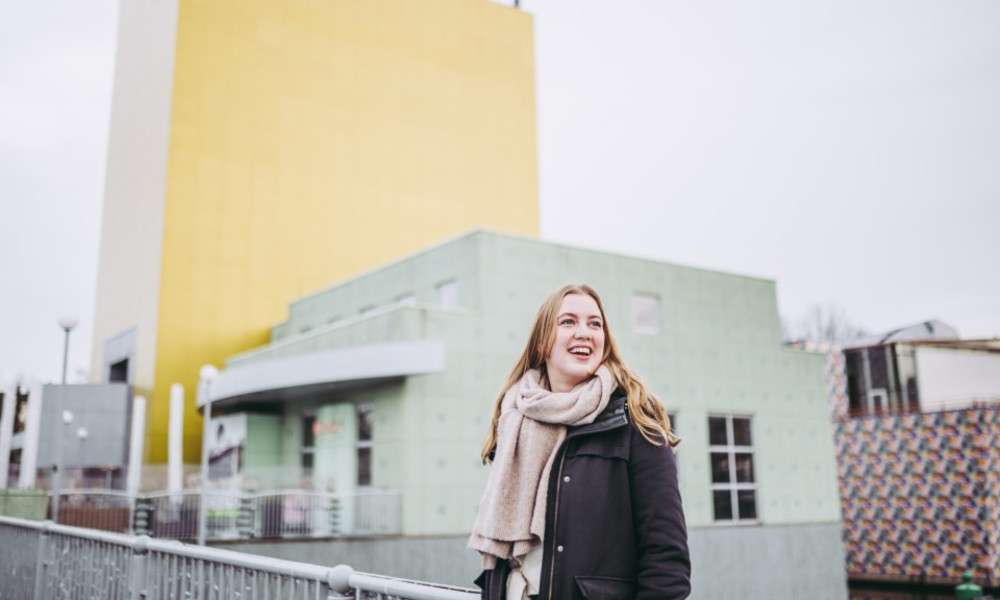
Making the social aspect of the energy transition her job is what Marloes has done. She followed the master Energy for Society at the Hanze University of Applied Sciences and specialises in sustainability and energy. After graduating, she easily found a job in Groningen.
Working on the social aspect of the energy transition
The energy transition not only requires new techniques, but also has a social side. Marloes Otter (24) knows all about this. She followed the master Energy for Society at the Hanze University of Applied Sciences and specialises in sustainability and energy. After graduating, she easily found a job in Groningen at the Groninger Energiekoepel (GrEK) as a cooperative & initiative supervisor. She talks about her study choice and what motivates her.
At what point in your bachelor's programme did you come into contact with the energy transition?
'At the end of the second year of my Bachelor's programme in International Facility Management, we talked about energy in buildings: purchasing sustainable energy but also how to make workplaces sustainable. In my third year, I had to take a minor abroad. I chose Boston where the course Energy & Sustainability was taught. This minor planted the seed in me to focus further on the energy transition. I only found out how much energy education is being done at the Hanze when I returned to the Netherlands.'
And then you chose the Master Energy for Society
'I knew I wanted to do a master's in sustainability and energy. After a gap year, I came across the Master in Energy for Society. This really appealed to me. The energy transition is often viewed from a technical and business perspective. The social perspective is often forgotten. That is precisely what is discussed in this master's programme. I like working with people and making that connection. That's why this master's was such a good fit for me.'
What does the social side of the energy transition entail?
'You can see that much of the energy transition comes from the top down; from the government, municipalities and provinces. But there is also a citizens’ movement. People who tackle it from the bottom up and take matters into their own hands. This movement fits in well with my current job, in which I work with such citizens' initiatives. I also find the communication side very interesting. How do you get people on board? Why don't people want to participate? I find that resistance interesting and that is what occupies me in my work. It was also covered a lot in my master's programme.'
Does your current work involve the social side of the energy transition?
'Yes, I work at the Groninger Energiekoepel, the umbrella organisation for all energy cooperatives and energy initiatives in the province. The province is full of groups of motivated villagers who want to generate energy themselves or want to save energy. For example, with a joint solar roof or a joint windmill. I help such energy cooperatives to kickstart their project. Another part of my work is that I talk to the cooperatives and municipalities. There is a lot of potential and a need within local cooperatives to work together more, to coordinate, to share experiences and knowledge and to jointly approach the municipality.’
Waarom zouden studenten moeten kiezen voor een energiecomponent?
'It's a very interesting field. For example, with rising gas prices and all the other things you hear in the news, it is necessary that more people learn about sustainability and energy. The energy transition is a major task that requires many people. Especially young people, because we are the future. We must all do this together. I always feel very good about doing this. You meet fun, motivated parties and people, and you do your bit.'
Feedback component
How satisfied are you with the information on this page?

